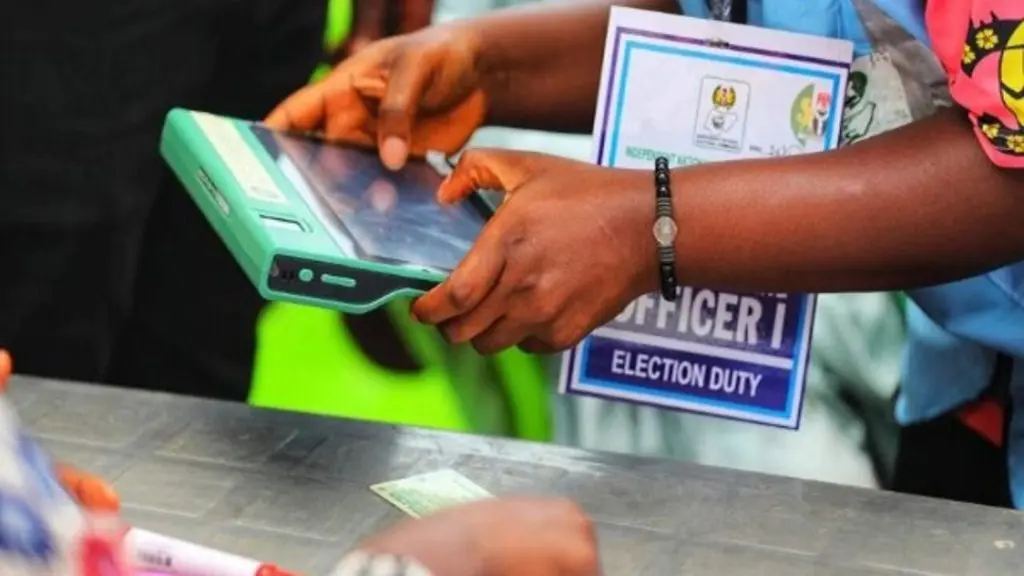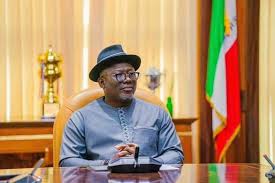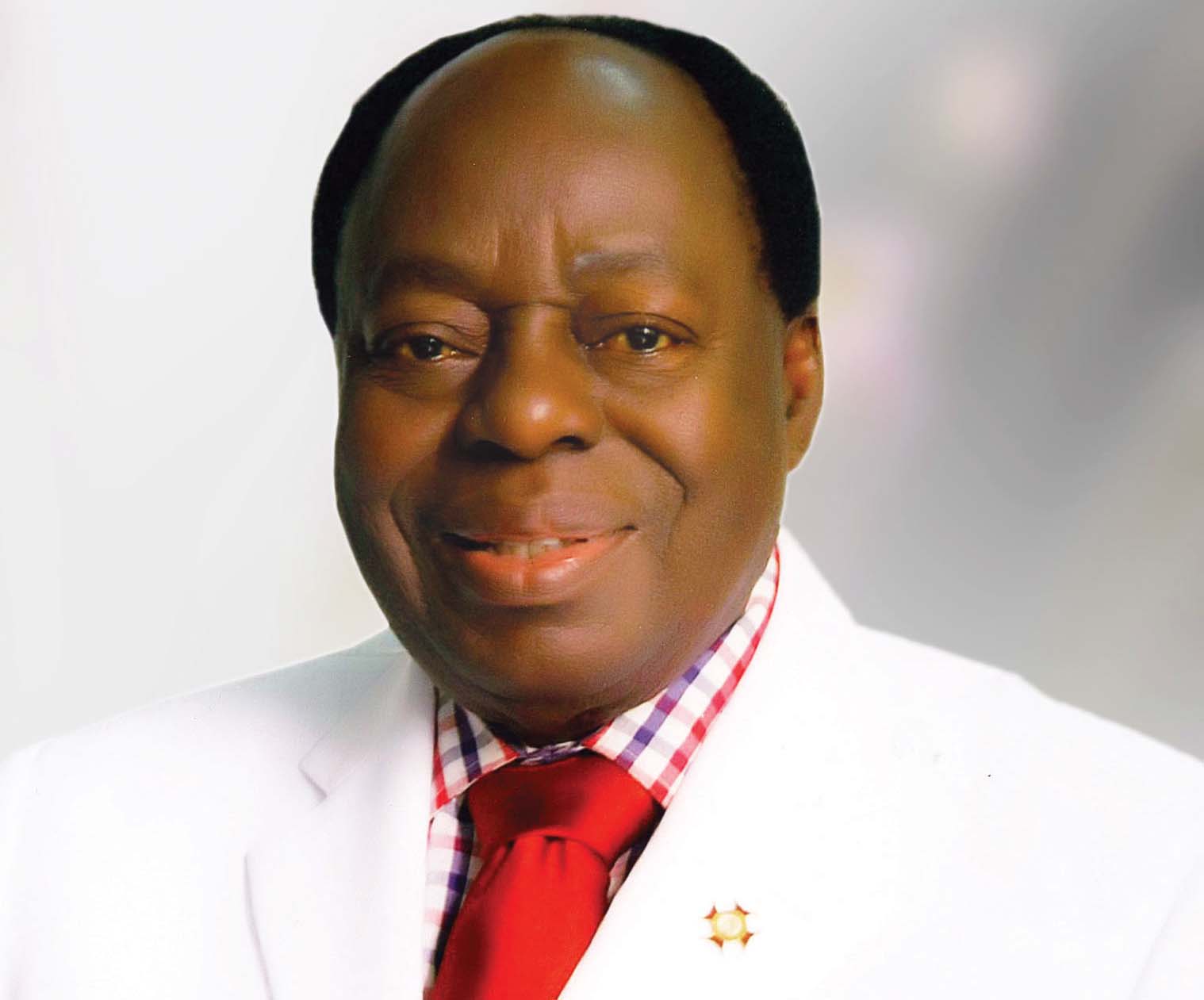Headlines
Osun poll: How BVAS exposed alleged rigging machine

When in August 2022, I announced to the whole world that in Osun, my principal, Adegboyega Oyetola, did not lose the July 16 governorship election, but only lost the vote count, some Nigerians, especially sympathisers of the Peoples Democratic Party, PDP, were furious. They called me names. But they could not marshal any reasonable argument to disprove my position. So, the judgement of the Osun State Election Petition Tribunal is a vindication of my position prior to the 2018 governorship election that the majority of Osun citizens, who are reasonable, knowledgeable, and who apart from ‘dancecraft’, has nothing to offer the state. His administration of Osun in the last 60 days has further exposed him as a man lacking in character, content, and capacity.
Similarly, the outcome of the tribunal is a vindication of my August 2022 postulation that we only lost the vote count and not the election. Contrary to the claims of the governor and his cohorts, three of the judges agreed that he forged his certificate, while two concurred that there was indeed overvoting in the July 16 governorship election. And in accordance with the Electoral Act, the invalid votes were separated from the valid ones, and Oyetola was declared the validly-elected governor of Osun State. Therefore, the issue of “Member 1” and “Member 2” being propounded by Senator Ademola Adeleke, Kolapo Alimi, and the rest only exists in their imagination. It is a pity that the governor does not know, and those we thought should know ended up misleading the poor man.
In the lead judgement, which was over 90 pages, “we” featured prominently to indicate that the position reached was reached by two or more persons. Similarly, in the dissenting judgement, which was just eight pages, “I” featured prominently to indicate he was alone in that decision. How Senator Ademola Adeleke’s men were able to confuse him about the fact that an eight-page judgement can be used to overturn over 90 pages of sound and scholarly judgement, which are well grounded in law and facts, remains a mystery to me.
How the tribunal arrived at its conclusion: Before delving into how the tribunal arrived at its conclusion, I wish to deal with the issue of alleged forgery as established by the Tribunal. Recall that Oyetola and APC approached the Tribunal on two fundamental grounds: one, that at the time Senator Adeleke was contesting, he was not qualified. Two, that he did not score the lawful valid votes. According to the Tribunal led by Justice Tertsea Kume, APC and Oyetola were able to prove the alleged forgery case against Governor Adeleke as EC9, which is the affidavit in support of personal particulars about the governor, told “a lie about itself”. The three justices of the Tribunal went further to hold that “clear reading of the above reproduced section of the Criminal Code and exhibit EC9 reproduced above reveals that EC9 tells a lie about itself. See ACN vs. Lamido (2011), LPELR-91741 (CA) 1 at 79–80 paras C- A, and 80 81 paras F- A.
“In that regard, the forgery of the said documents presented by the 2nd respondent (Ademola Adeleke) to the 1st respondent (INEC) has been proved. “The same consequence applies to File D in so far as the contents therein relate to ‘Osun State’ which was not in existence before 1991. See PDP v. Degi-Eremenyo (2021) 9 NWLR (Pt. 1781) 274 at 292 paras A-C cited by learned counsel for the Petitioners.” The Tribunal Justices went further to hold as follows: “The question, however, is whether, having found forgery in parts of exhibit EC9 and file D, the 2nd Respondent (Ademola Adeleke) is exonerated by exhibits 2R.RW6 and 2R.RW9. We think he is. It would have been otherwise if no other qualifying certificate of attendance at an institution had been presented to the first respondent for the election.” As a layman, the mere fact that the Tribunal only says they “think,” shows that this is another potent pendulum that could swing against the governor at the appellate court. Reason being that, the additional qualifications which were the basis of what I want to refer to as his temporary respite in the issue of qualification, was acquired using the O’Level that has been proven to be allegedly forged. Therefore, if we go by the popular axiom, you cannot build something on nothing and expect it to stand. It goes without saying that the governor is yet to be let off the hook as far as his qualification to stand for the election is concerned. He can be disqualified for submitting an alleged forged document as contained in his file with INEC.
But let’s go back to the issue of overvoting. The Electoral Act is clear. To make a return as to the announcement of the results of the election, the presiding officer must take into account what the BVAS transmitted, which is on the back end. In this instance, Senator Adeleke was declared winner of that election by the INEC on July 17 based on the figures the BVAS transmitted. It was these figures the APC and Oyetola applied for and got from the INEC. After filing their petitions, the PDP rushed to INEC and obtained what was later referred to as a “synchronized” BVAS report. Assuming without conceding that there should be a synchronised BVAS report, the next question to ask, which I raised in September, is: On what basis then was Adeleke declared the winner on July 17? By their stretch of argument, it means Adeleke was declared the winner before “synchronization”. Since Adeleke was never declared the winner by opening the BVAS machine, how on earth will you now sway the tribunal to accept that? At any rate, even in that one too, the expert hired by Adeleke, Samuel Oduntan, to analyse the BVAS machine also admitted before the court that there was overvoting. The only difference is that he said it was discovered in only six polling units. But during the cross-examination, APC and Oyetola counsel were able to prove to him that apart from the six he claimed over-voting occurred, there were others. “Under the supervision of the Independent National Electoral Commission, INEC, I conducted the forensic analysis of BVAS machines. I then analyzed the result with the Form EC8A series. My report didn’t determine who won or lost. I only gave the figures. I observed overvoting in six polling units. I was paid for the job. But it does not affect the figures and facts in my report,” he said.
READ ALSO:JUST IN: Supreme Court Affirms Lawan as Yobe North APC Senatorial Candidate
Under cross-examination by petitioner’s counsel, Akin Olujinmi, SAN, Odutan, while being confronted with his witness statement and the BVAS report (Exhibit RBVR) on the accreditation figure in Ward 4, unit 7, said: “In my witness statement, page 7, serial number 138, the accreditation figure as extracted on the BVAS machine is 388, but on exhibit RBVR, it is 313.” But because it is difficult to cover up lies, even in the synchronised BVAS report presented before the Tribunal by INEC, the APC and Oyetola legal team were able to prove over-voting in over 100 polling units across the 10 local government areas, or LGAs, that they were challenging. What is more, INEC, the beneficiary (Adeleke), and the PDP, which sponsored Adeleke, could not even agree on the BVAS reports they presented before the Tribunal. This was what led Adeleke’s counsel to disown even the synchronized BVAS report INEC presented to the Tribunal.
Again, INEC’s witness, who testified before the Tribunal, did not disown the BVAS report given to Oyetola and APC, and she admitted under cross-examination that there was indeed overvoting in that election.
Headlines
Noble Ladies Champion Women’s Financial Independence at Grand Inauguration in Abuja

Women from diverse backgrounds across Nigeria and beyond gathered at the Art and Culture Auditorium, Abuja, for the inauguration and convention of the Noble Ladies Association. The event, led by the association’s Founder and “visionary and polished Queen Mother,” Mrs. Margaret Chigozie Mkpuma, was a colourful display of feminine elegance, empowerment, and ambition.
The highly anticipated gathering, attended by over 700 members and counting, reflected the association’s mission to help women realise their potential while shifting mindsets away from dependency and over-glamorization of the ‘white collar job.’ According to the group, progress can be better achieved through innovation and creativity. “When a woman is able to earn and blossom on her own she has no reason to look at herself as a second fiddle,” the association stated.
One of the association’s standout initiatives is its women-only investment platform, which currently offers a minimum entry of ₦100,000 with a return of ₦130,000 over 30 days—an interest rate of 30 percent. Some members invest as much as ₦1 million, enjoying the same return rate. Mrs. Mkpuma explained that the scheme focuses on women because “women bear the greater brunt of poverty” and the platform seeks “to offer equity in the absence of economic equality.”
Education is also central to the Noble Ladies’ mission, regardless of age. Their mantra, “start again from where you stopped,” encourages women to return to school or upgrade their skills at any stage in life. The association believes that financial stability is vital in protecting women from cultural practices that dispossess widows of their late husbands’ assets, while also enabling them to raise morally and socially grounded families.
Founded on the vision of enhancing women’s skills and achieving financial stability, the association rests on a value system that discourages pity and promotes purpose. “You have a purpose and you build on that purpose to achieve great potentials and emancipation,” Mrs. Mkpuma said.
A criminologist by training and entrepreneur by practice, she cautions against idleness while waiting for formal employment. “There are billions in the informal and non-formal sectors waiting to be made,” she said, rejecting the “new normal of begging” and urging people to “be more introspective to find their purpose in life and hold on to it.”
Mrs. Mkpuma’s management style keeps members actively engaged, focusing on vocational skills and training to prepare them for competitive markets. She is exploring “innovative integration of uncommon technologies” and is already in talks with international franchises to invest in Nigeria, with Noble Ladies as first beneficiaries.
The association’s core values include mutual respect, innovation, forward-thinking, equal opportunity, and financial emancipation. With plans underway to establish a secretariat in the heart of Abuja, the group aims to expand its impact.
The event drew high-profile guests, including former Inspector General of Police, Mike Okiro, and a host of VIPs, marking a significant milestone in the association’s drive for women’s empowerment.
Headlines
NEPZA, FCT agree to create world-class FTZ environment

The Nigeria Export Processing Zones Authority (NEPZA) has stepped in to resolve the dispute between the Federal Capital Territory Administration and the Abuja Technology Village (ATV), a licensed Free Trade Zone, over the potential revocation of the zone’s land title.
Dr. Olufemi Ogunyemi, the Managing Director of NEPZA, urged ATV operators and investors to withdraw the lawsuit filed against the FCT administration immediately to facilitate a roundtable negotiation.
Dr. Ogunyemi delivered the charge during a courtesy visit to the Minister of the Federal Capital Territory, Barrister Nyesom Wike, on Thursday in Abuja.
You will recall that the ATV operators responded to the revocation notice issued by the FCT administration with a lawsuit.
Dr. Ogunyemi stated that the continued support for the growth of the Free Trade Zones Scheme would benefit the nation’s economy and the FCT’s development, emphasizing that the FCT administration recognized the scheme’s potential to accelerate industrialisation.
Dr. Ogunyemi, also the Chief Executive Officer of NEPZA, expressed his delight at the steps taken by the FCT minister to expand the economic frontier of the FCT through the proposed Abuja City Walk (ACW) project.
Dr. Ogunyemi further explained that the Authority was preparing to assess all the 63 licensed Free Trade Zones across the country with the view to vetting their functionality and contributions to the nation’s Foreign Direct Investment and export drives.
“I have come to discuss with His Excellency, the Minister of the Federal Capital Territory on the importance of supporting the ATV to succeed while also promoting the development of the Abuja City Walk project. We must work together to achieve this for the good of our nation,” he said.
On his part, the FCT Minister reiterated his unflinching determination to work towards President Bola Ahmed Tinubu’s Renewed Hope Agenda by bringing FDI to the FCT.
“We must fulfil Mr. President’s promises regarding industrialization, trade, and investment. In this context, the FCT will collaborate with NEPZA to review the future of ATV, a zone that was sponsored and supported by the FCT administration,” Wike said.
Barrister Wike also said that efforts were underway to fast-track the industrialisation process of the territory with the construction of the Abuja City Walk.
The minister further said the Abuja City Walk project was planned to cover over 200 hectares in the Abuja Technology Village corridor along Airport Road.
According to him, the business ecosystem aimed to create a lively, mixed-use urban center with residential, commercial, retail, hospitality, medical, and institutional facilities.
He added that the ACW would turn out to be a high-definition and world-class project that would give this administration’s Renewed Hope Agenda true meaning in the North-Central Region of the country.
Barrister Wike also indicated his continued pursuit of land and property owners who failed to fulfil their obligations to the FCT in his determination to develop the territory.
Headlines
Benue IDPs block highway, demand return to ancestral homes

Vehicular movement along the Yelwata axis of the Benue–Nasarawa highway was brought to a standstill on Wednesday as Internally Displaced Persons, IDPs, staged a protest, demanding immediate return to their ancestral homes.
The protesters, believed to be victims of persistent attacks by suspected herdsmen, blocked both lanes of the busy highway for several hours, chanting “We want to go back home”.
The protest caused disruption, leaving hundreds of motorists and passengers stranded.
Eyewitnesses said the displaced persons, many of whom have spent years in overcrowded IDP camps, are expressing deep frustration over the government’s delay in restoring security to their communities.
“We have suffered enough. We want to return to our homes and farms,” one of the protesters told reporters at the scene.
Security personnel were reportedly deployed to monitor the situation and prevent any escalation, though tensions remained high as of press time.
Efforts to reach the Benue State Emergency Management Agency, SEMA, and other relevant authorities for comment were unsuccessful.
-

 Headlines4 years ago
Headlines4 years agoFacebook, Instagram Temporarily Allow Posts on Ukraine War Calling for Violence Against Invading Russians or Putin’s Death
-

 Headlines4 years ago
Headlines4 years agoNigeria, Other West African Countries Facing Worst Food Crisis in 10 Years, Aid Groups Say
-

 Foreign3 years ago
Foreign3 years agoNew York Consulate installs machines for 10-year passport
-

 News1 year ago
News1 year agoZero Trust Architecture in a Remote World: Securing the New Normal
-

 Entertainment3 years ago
Entertainment3 years agoPhyna emerges winner of Big Brother Naija Season 7
-

 Headlines1 year ago
Headlines1 year agoNigeria Customs modernisation project to check extortion of traders
-

 Entertainment2 years ago
Entertainment2 years agoMovie download platform, Netnaija, announces closure
-

 Economy2 years ago
Economy2 years agoWe generated N30.2 bn revenue in three months – Kano NCS Comptroller














